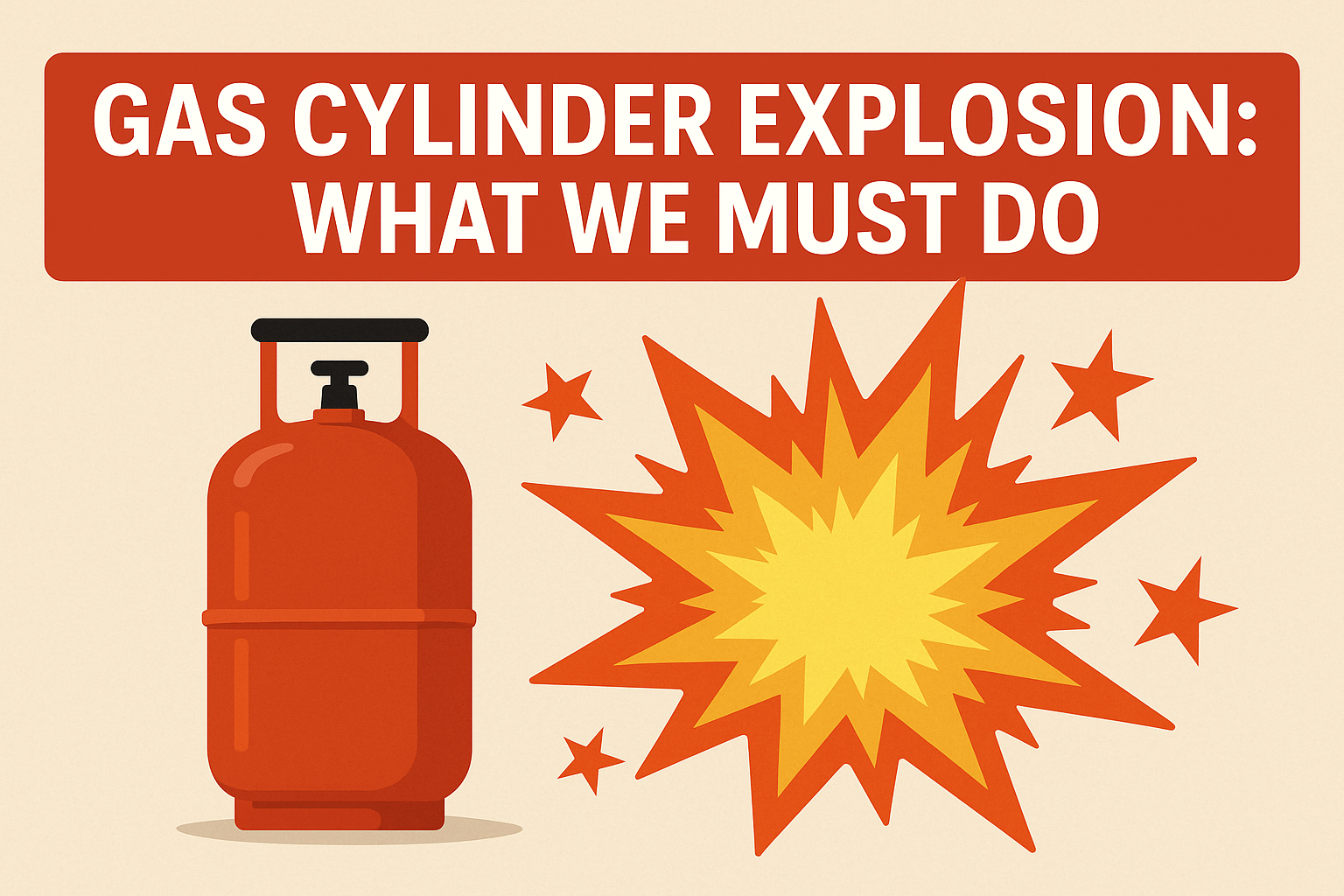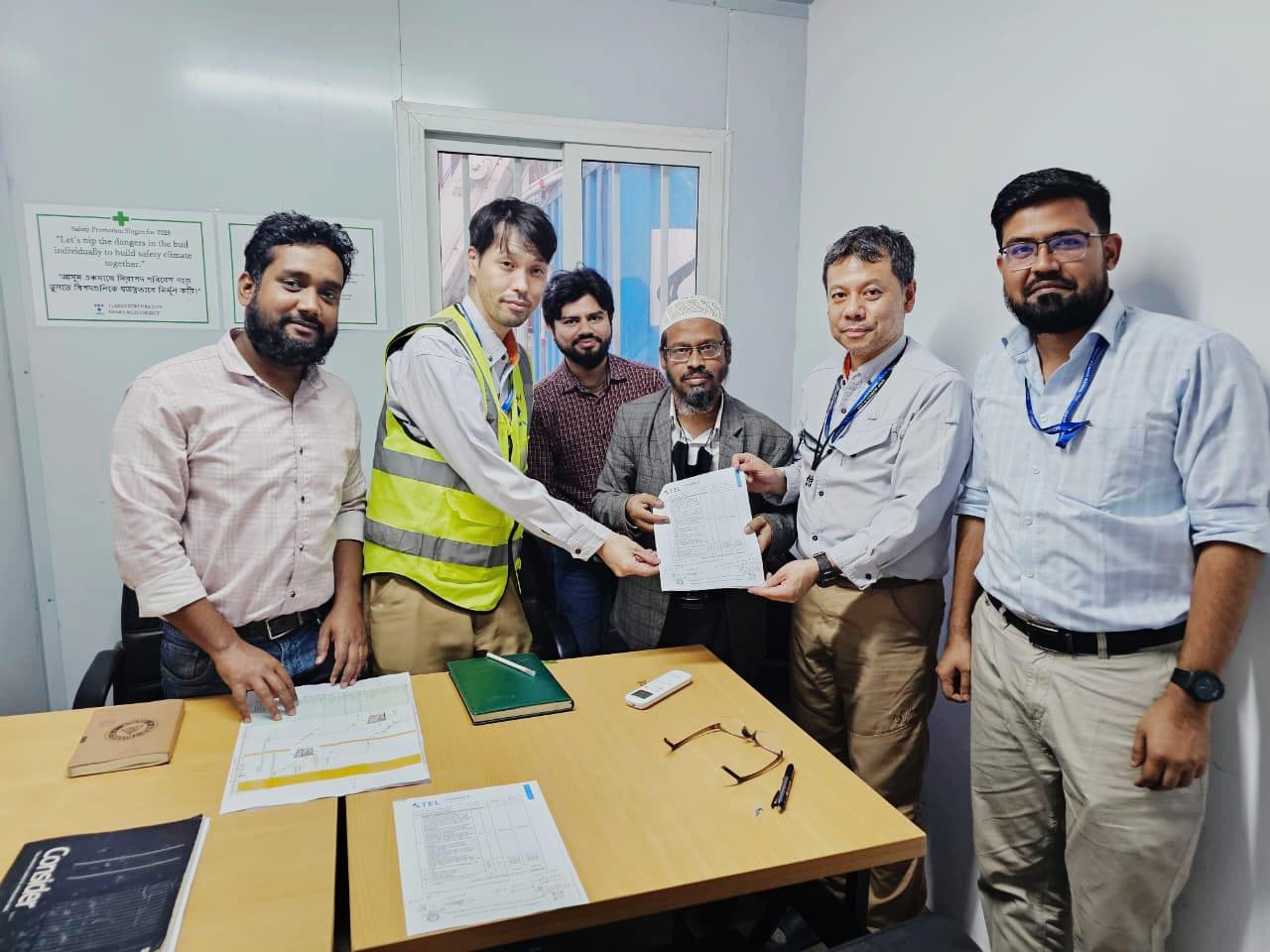27/05/2025
Gas Cylinder Explosion: What We Must Do
Engr. Md. Shahjahan Alam
Every day, we unknowingly carry ticking gas bombs—in our homes, our cars, even our kitchens. One small leak, one tiny spark, and lives can change in seconds. This isn't just about fire—it's about survival. Learn how to protect what matters most

The severity of an explosion depends on the amount of thermal energy released in a short span of time. A nuclear explosion is considered the most destructive because of the immense heat energy it releases in microseconds, creating extreme pressure—what we call peak pressure—capable of lifting and hurling objects kilometers away.
There are two main types of explosions:
-
High-order explosion (detonation): When the speed of combustion exceeds the speed of sound at the source.
-
Low-order explosion (deflagration): When the speed of combustion is lower than the speed of sound.
In high-order explosions, the combustion front can travel at 2,000 to 8,200 meters per second (up to 29,520 km/h). For example, dynamite has a detonation speed of about 4,900 m/s. In contrast, the speed of sound at sea level is about 335 m/s (1,200 km/h). When combustion speed exceeds sound speed, it’s called supersonic or hypersonic; when slower, it’s subsonic.
We use gas in homes, vehicles, factories—either through pipelines or gas cylinders. Once limited to urban life, gas usage is now widespread in rural areas too. This means we’re carrying around potential gas bombs daily.
Sadly, these gas "bombs" explode frequently, resulting in deaths, disabilities, and massive property losses.
For example, on May 17, 2025, a report in Prothom Alo described a tragic fire in Badda caused by a gas leak, where parents and a child suffered severe burns. Back in September 4, 2020, a gas leak in Narayanganj led to a deadly fire that killed 25 people and seriously injured many others.
Let me share another horrifying incident from Uttara, Dhaka. A man returned home early in the morning. As he lit a match in the kitchen, the whole room ignited instantly. Unbeknownst to him, gas had been leaking all night while doors and windows remained shut, causing gas to accumulate. That one matchstick triggered a devastating explosion. Four family members, including the parents, died later from severe burns.
These tragic incidents are happening in vehicles, factories, during ship-breaking, and in boilers or pressure vessels—everywhere.
🔧 Check and Stop Gas Leaks
As mentioned, the leading cause of gas cylinder explosions is leakage—due to faulty valves, loose fittings, cracked pipes, or damaged regulators. Leaked gas can accumulate and ignite with a single spark. Regular leak checks are crucial. You can do this yourself using soapy water: apply it to joints and valves; if bubbles form, there's a leak. Call a technician immediately to fix it.
📊 Check the Gas Meter
If you have a gas meter or pressure gauge, you can easily detect leaks. Shut off your gas appliances—if the meter still shows a pressure drop, there’s a leak. Find and fix it quickly.
🌬️ Ensure Proper Ventilation
Imagine you’re away during Eid holidays. Your kitchen remains closed for days. A gas leak can fill the room in your absence. When you return, don’t rush to light a stove or turn on a switch. First, open all doors and windows, turn on the fan, and wait. Good ventilation will dilute or expel any accumulated gas—avoiding any chance of explosion.
🚗 Inspect Your Car’s Gas Cylinder
With time, car gas cylinders may develop rust and lose strength, becoming unable to handle high pressure. Inspect and pressure-test the cylinder every 3 years. During refueling, step out of the vehicle. Avoid overfilling and protect the cylinder from falls or impacts. Better yet, consider avoiding carrying this “mobile bomb” altogether.
🛑 Use Gas Detectors
Install gas detectors at home or office. These devices can detect the presence and concentration of various gases in the air. They’re widely available in the market.
🔥 Beware of Ignition Sources
Avoid any open flames or sparks—cigarettes, matchsticks, gas lighters, welding—near gas cylinders or pipelines. Put up safety signs to warn others. Remove all ignition sources.
✅ Use Quality Equipment and Professional Installation
Gas systems in homes, vehicles, or factories are sensitive and hazardous. So be responsible when purchasing and installing components. Don’t settle for substandard parts. Use high-quality pipes, valves, and regulators (minimum schedule 80), and have them installed by qualified professionals. Always follow the manufacturer's usage guidelines.
BSc in Mechanical Engineering (BUET);
Postgraduate in Environmental Science and Business Administration;
Fellow – IEB, LEED Green Associate
Chairman – Axis Triangle Group and Triangle Engineers Ltd (TEL).
Uttara, Dhaka, Bangladeshh.
Powered by engineers
News & Blog:




27/11/2025